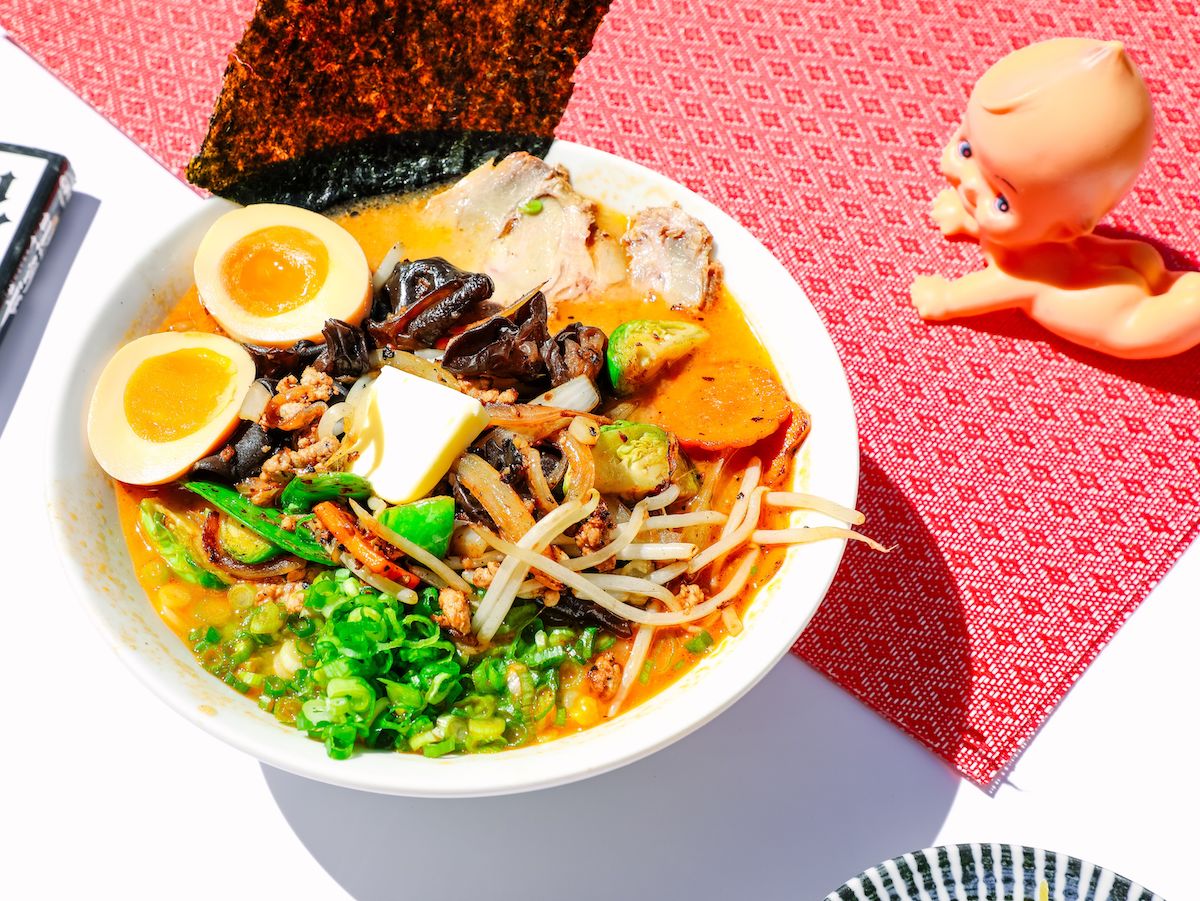Daikaya sends a lucky contest winner to Japan. Photograph courtesy of Daikaya
When Daikaya opened near Chinatown in 2013, real ramen was a rarity in DC, not to mention Sapporo-style, one of Japan’s 32 regional varieties of soup.
The cozy store pioneered a craze, offering bowls of shio, shoyu and mugi-miso swimming with noodles imported from the Nishiyama factory and pork-tipped “spicy bombs”. Lines for one of Daikaya’s roughly 40 seats stretched around the block, and wait times could reach two hours on busy weekends. Chef Katsuya Fukushima, who traded his Minibar tweezers to become a ramen chef serving 600 guests a night, has even earned the approval of his Japanese ramen mentor, who has traveled halfway around the world to sample his disciple’s soup.
Today, almost ten years and three ramen shops later (Haikan, Bantam King, Hatoba), the Daikaya team has served a million bowls. To celebrate, they’re hosting an online contest where one lucky winner, chosen at random, will win round-trip tickets for two to Sapporo, Japan (valid until December 31, 2023). The country just reopened to visa-free tourist travel this week, lifting its strict pandemic border controls. Also included in the price of Daikaya: apprivate tour of Nishiyama Seimen Company, where Daikaya Group’s custom noodles are made, and a special ramen lunch. The highlights in the fine print: Entrants must be 21 years or older, live in the DC area, and be available to claim their prize at Daikaya in November. Online contest entries close Friday, October 28 (and are limited to one per person).
Although some things have changed at Daikaya over the past decade, much has remained the same. Take, for example, the ramen base – a broth rich in kurobuta pork bones that is passed down from pot to pot, and which co-owner Daisuke Utagawa likens to a “mother” in the world of the mole or the bakery. Also: the main mission of the group.
“Our motivation has always been to serve democratic Japanese cuisine,” says Utagawa. “In Japan, there’s a word called ‘Class D Gourmet’. It doesn’t mean it’s lower quality or taste. It just means it’s much more affordable.


